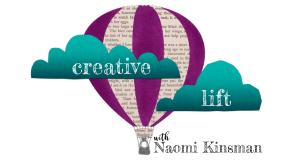When you ask the wrong questions, you end up with the wrong answers. Seems logical enough, right? Most of us don’t intentionally ask the wrong questions. However, just because we don’t intend to ask low-value questions doesn’t mean we don’t ask them.
Here are a few sneaky questions that might pop up from time to time:
- Why is everyone else succeeding faster than me?
- Why didn’t I get started on this project sooner?
- Why is this project so challenging?
- What should I do about this mess?
- When will things start working out?
- What’s wrong with me?
Questions such as these may seem like a tiny, not-so-helpful habit. The truth is, questions such as these can completely derail us. Why? Because our mind goes to work on solving the questions we feed it. So, instead of tackling our problems, our mind is doggedly mapping out wrong turns, or collecting reasons to support our unintentional belief that nothing is ever going to change in our lives.
It’s not enough to realize that these questions aren’t helping us.
Knowing we shouldn’t do something usually doesn’t stop us from doing it. In fact, if we focus on the questions we shouldn’t ask, we’ll end up being unable to avoid thinking about them. If, instead, we have a strategy to help us find more positive, helpful questions, we will have a clear way to address any negative questions that arise.
When you find yourself in a low-value question spiral, ask yourself:
- Is this question pointing out a real problem?
- If yes, move on to question two.
- If no, release the question and go do something playful or active. Move into a new, more optimistic space.
- What is the real problem?
- State the problem in clear language, such as “I’m frustrated with how long it is taking me to finish the script I’m writing.”
- Review your past experiences. When have you had a win in a similar situation?
- Think expansively. Maybe you’ve never finished a script before, but you have finished a project of some kind.
- Keep reviewing until you find three examples of (even loosely) similar wins and look for commonalities between the situations. What seems to work for you?
- Take note of situations where you definitely didn’t succeed. They may add an important element to your ultimate question.
- Shape what you’ve discovered into a clear, specific question.
- Your question might now sound like, “How might I give myself a motivating deadline that doesn’t make me feel like I can’t breathe?
- Brainstorm elements of this question so that you can break the problem into smaller, easy-to-handle questions.
- Answer your big question by tackling these smaller questions one at a time.
- Your set of questions might look like:
- WHY is this project important? What big-picture vision can I tap into? What will finishing this project mean for me and for others?
- WHAT are the milestones between where I am and my completed project?
- HOW LONG does it normally take me to write one scene?
- WHEN might I expect to be done, given the milestones I’ve determined and my regular writing speed?
- WHO might help me stick to my goal?
- WHERE might I get stuck? What strategies might I use to overcome my obstacles?
The right question can transform an impossible roadblock.
A set of questions such as this can turn a desperate plea such as “Why is this project so challenging?” into a manageable situation. However, unless you’re superhuman, it’s unlikely that your first impulse in the midst of a crisis is to ask productive questions. That’s why the first four steps are essential. Once you have gently moved yourself out of downward-spiral thinking into a more confident, optimistic space, you are able to tap into the wisdom that’s there, inside you, waiting to be uncovered. No one is as much an expert on you as YOU. You know what works for you and what doesn’t. All you need is the reliable process to help you find what you knew all along.
What unhelpful question have you been wrestling with lately? How might this process bring momentum to a blocked area of your life? Go ahead and try it out, and then come back and let me know how it goes! I’d love to hear your story. Tag me on Instagram or Twitter.


